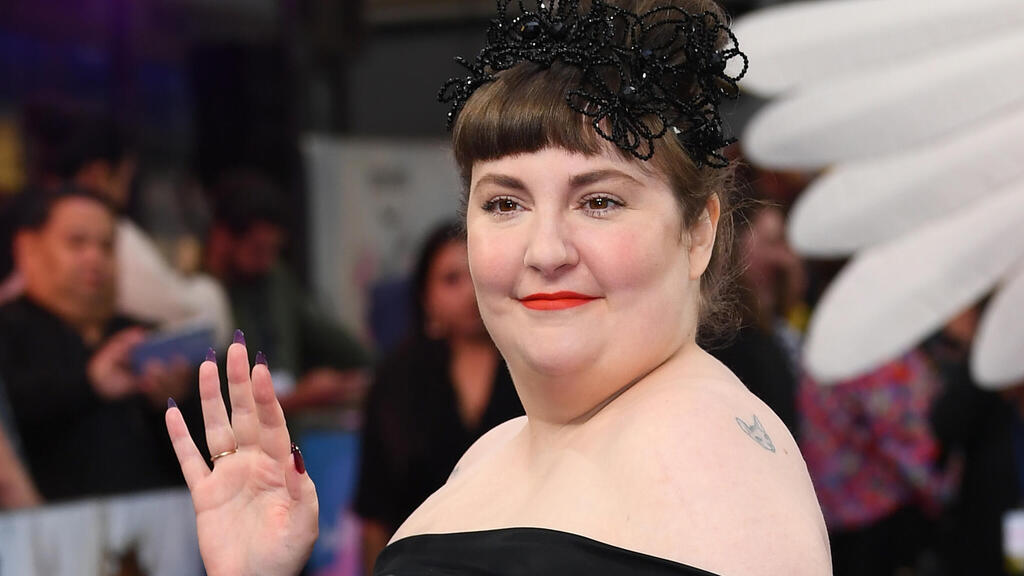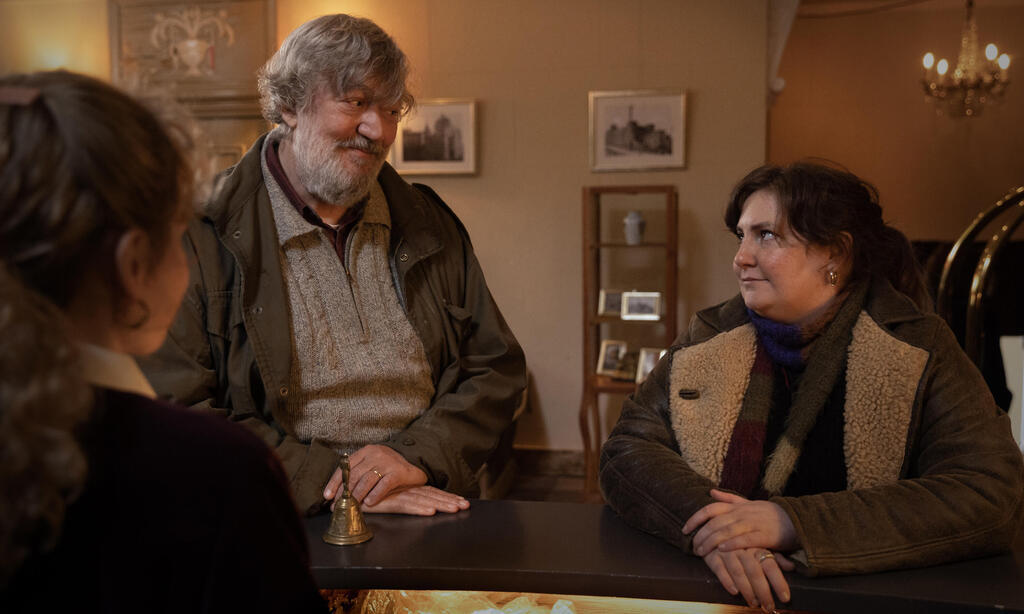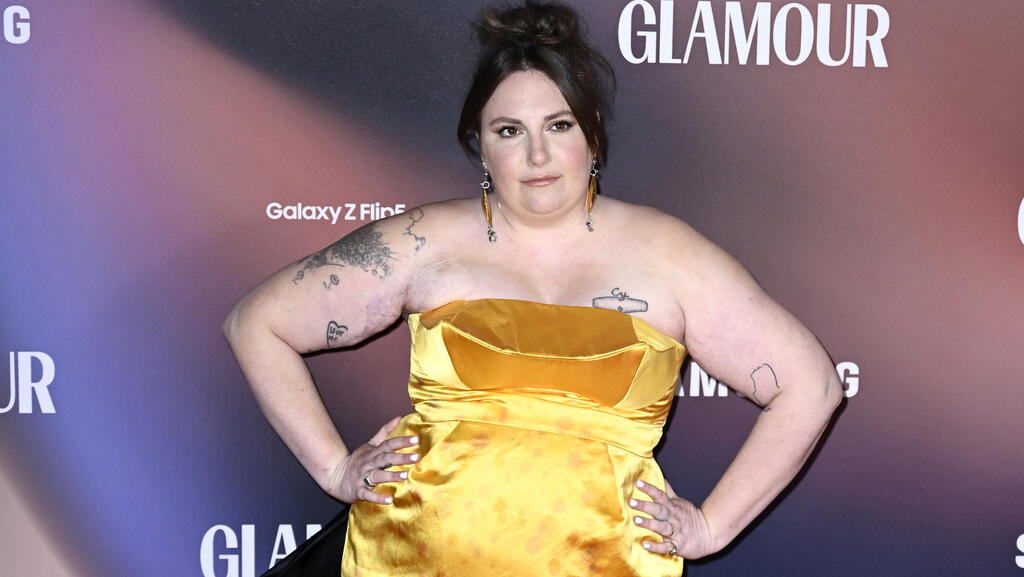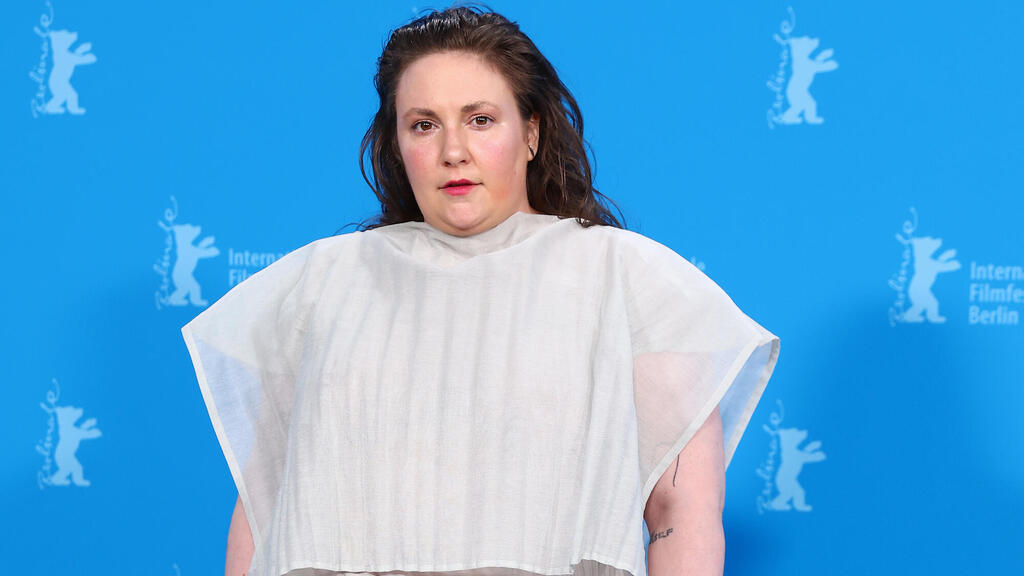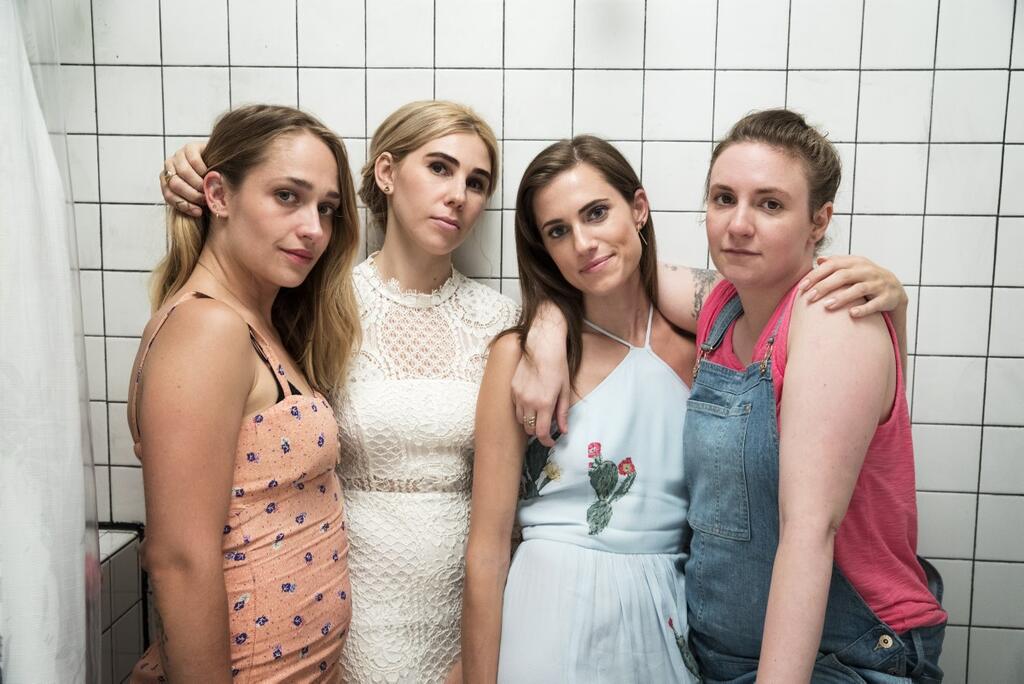Long before she was hailed as the “voice of her generation,” Lena Dunham decided to spend her college summer vacation in Poland. Her Jewish grandmother Dorothy and mother Laurie, from a family that lost many members in the Holocaust, couldn't understand why she chose that destination.
“My mother said, ‘well, why would you want to go there? It's so scary and sad,’” Dunham revealed when we met recently during the Berlin Festival. “My mother and my grandmother's idea was ‘no, I don't ever want to go there.’ Like we know enough. We know enough about the pains of being Jewish.”
Treasure trailer
Dunham ignored their advice and went ahead with her plans. She admits that the trip was primarily about drinking alcohol and meeting boys, not about discovering her identity. At that point, she was unaware of her roots.
Years passed, and Dunham became a renowned creator and actress. It was then that she found herself reconnecting with her roots. Three years ago, she chose to marry British musician Luis Felber, whose father is Jewish, in a traditional ceremony.
“My grandmother died in 2016. She was 96. She had been such an influential part of my life. I got to have her my life until I was 30 and it pushed me even further into considering what being Jewish meant to me,” she said.
She began studying with a rabbi, reading religious texts and works by authors like Yehuda Amichai. She appreciates that in Judaism, having a relationship with God is not mandatory; what is essential is the relationship with the community. To her, being Jewish means being a reliable person, a pillar of support, someone who can recommend a good doctor or a beautician or someone who brings bagels in an emergency. This concept is known as being a 'mensch,' a good person.
What did you find out about your family history?
“My great, great grandmother, Regina, left Poland, from just outside of Lodz, for the US when she was about 15 because an older neighbor wanted to marry her. Nine out of her ten siblings were killed in 1941. Our Judaism was a huge part of our life. But it was much more about finding a way to be an American Jew and assimilating than it was about looking back."
"The Jewish desire to use humor to survive"
When Dunham came across the script for Treasure, based on Lily Brett's autobiographical book, she realized it would allow her to connect with her family identity and history. The dramedy, written and directed by Julia von Heinz, premiered at the Berlin Festival and is now hitting theaters in Israel.
Set in the early 1990s, the story follows a divorced New York journalist (Dunham) who joins her Jewish father (Stephen Fry), a British-Jewish Birkenau camp survivor, on a journey to his homeland, from which he emigrated after World War II. During the trip, the stubborn father confronts past traumas and demons, with significant impacts on their complex father-daughter relationship.
When she read the script, she thought that her grandmother would have seen the profound meaning behind it.
What did you bring from your relationship with your father to your role?
"It's funny because my mother is Jewish but my father is an atheist who comes from a long, long line of Presbyterians, but he loves being in a Jewish family. He had a Jewish girlfriend in college and he said ‘I'm never going back.’ He loves having a Jewish wife and Jewish children, he loved having a Jewish mother-in-law, which said almost no man ever. But I think that for me, so much of it was actually about my relationship with my mother and my grandmother.
"The biggest thing for me was speaking to Lily Brett, the author of the book, and hearing about her relationship with her father, which was extraordinary and special and specific.
"Something I loved about this film is that even though there's humor, there was never any humor at the expense of this event that had occurred. There was never any making light of it. It was the Jewish desire, to use humor to survive."
The father in the movie constantly comments on his daughter's weight and love for food, in an almost obsessive manner.
"I know he's obsessed with her eating. My cousin was just having a baby shower and someone was like, 'Did you get a plate,' and someone else, 'Did you get a plate' and then the third, and finally, I was like, 'I don't want a ******* plate.' The amount of people who asked me if I'd eaten food. But if anyone comes to my house and they don't eat, I'm turning into my mother and I'm OK with that."
Told the director not to beautify her
It's important to note that this isn't just about eating as part of Jewish tradition. Over the years, Dunham has addressed body image issues and hasn't shied away from showing her full-figured, tattooed body, which defies Hollywood's thinness standards.
Dunham embraces her body as it is and approaches her roles with honesty, addressing the painful and challenging aspects of being human. She believes that normalizing struggles with health, mortality and aging will make them easier to deal with.
"My father is an atheist who comes from a long, long line of Presbyterians, but he loves being in a Jewish family. He loves having a Jewish wife and Jewish children, he loved having a Jewish mother-in-law, which said almost no man ever"
Early in production, she told the director not to beautify her and expressed that she has no ego about her on-screen appearance. The script hinted at her character's self-control issues related to eating, highlighting her relationship with binge eating during moments of lost control. Her character doesn’t wear makeup or style her hair, emphasizing that the issue is more about control than appearance.
Dunham aims to dispel the misconception that eating disorders are about looks, explaining that they are actually about trying to exert control over an uncontrollable world.
Walking on eggshells
She says making Treasure profoundly impacted her. Filming near Auschwitz, rather than on a set in Berlin, allowed the camp's presence to deeply affect the cast and crew. This proximity helped them authentically recreate the intense emotions needed for the film.
"I'm the first person in my family who's ever been to Auschwitz and made it out. That was a very powerful thing to realize," she says, adding that it gave her a deeper understanding of her Jewish identity and its influence on her.
"It increased my knowledge, it increased my empathy, it increased my desire to prevent things like this happen, to my fellow Jews and anyone ever again, to look at the effects of generational violence and trauma, and to try to change that for anyone who can, to be a voice for good and because the Holocaust also has a lot to teach us about the dangers of silence."
Dunham's reflections come in the context of the October 7 attacks and the war in Gaza. She arrived in Berlin a few months after the deadly Hamas attack, amid growing protests against Israel's actions. Intelligent and outspoken, with a no-nonsense attitude devoid of Hollywood clichés, Dunham found herself treading carefully in her public statements, navigating the sensitive environment she was thrust into.
"I'm the first person in my family who's ever been to Auschwitz and made it out. That was a very powerful thing to realize"
The pressure intensified during the official festival press conference. When asked about October 7 and the rise of antisemitism, she responded cautiously, delivering a message with a global humanistic perspective.
Dunham said she hoped the film could explore “not just about a massive act of violence but the intergenerational consequences of that. It’s about the history of antisemitism, but also how a legacy of violence affects anybody. Hopefully, an examination like this looking backwards, can help us look forward.”
The TV star turned filmmaker lamented the real-life present day with its “shocking amount of antisemitic rhetoric, Islamophobic rhetoric, transphobic – the aim is to isolate people, make them feel inhuman, and that’s a universal story unfortunately.”
During this interview too, it was evident that she was walking on eggshells. We met in a suite at one of Berlin's luxury hotels, near a building that once housed a secret Gestapo detention center where prisoners were tortured. Just a few streets away stood the Reich Main Security Office, which aimed to fight not only Jews but all enemies of the Third Reich.
Years have passed, yet it’s quite difficult being Jewish these days.
"Did you see Stephen’s address on the BBC for Christmas?"
Yes, of course. He said that Jews should stand tall and be proud of who they are, and that he’s glad his grandparents are not alive to read newspapers that would remind them of 1930s Europe.
“It was a beautiful thing. It's a very complicated time. Even though this story was in the works before October 7, for me, it's the way I've coped with being a woman. It's the way I've coped with chronic illness (Dunham suffers from endometriosis, which led to a hysterectomy, and Ehlers-Danlos syndromes, which are genetic disorders affecting connective tissues in the body) and I think it’s a way to talk about identity, and in this case Jewish identity, that I hope it's offering to other Jewish people. And I also hope it increases the empathy and understanding of people who see it because it doesn't just depict the Holocaust, but it depicts the long-term ripple effects of the Holocaust."
Dunham emphasized that war is never the answer and that we always mourn the loss of innocent lives, acknowledging the deep rift that harms everyone involved. She hopes her film serves as a reminder of the immense trauma, not just for the Jewish people, but as a way to increase empathy and reduce division. She believes that while we often look forward, it’s crucial to look back, visit Auschwitz, and gain a deeper understanding of history, as it is not as distant as we might think.
There is now denial of the Holocaust, just as there is a denial of the events of October 7.
"It's like saying the earth is flat."
"I just love the concept of a woman in crisis"
The story of Dunham has been told many times, so here it is briefly: Born 38 years ago in New York, her father was a painter and her mother an artist and photographer. During her college years, Dunham began uploading videos to YouTube and later moved on to create web series. In 2010, she wrote and directed the film Tiny Furniture, which was featured at the Jerusalem Film Festival.
"I was in Israel for ten days and it was amazing," she recalls. "I remember at an audience Q&A in Jerusalem, I said, 'You know how we all have that moment after high school, sitting at our parents' house, not knowing what to do with ourselves?' Some people in the audience responded, 'We don't know that because we have to enlist in the military.' So I said, 'Okay, forget what I said.'"
In her mid-20s, Dunham convinced HBO to entrust her with creating Girls, a show about young women in New York City. The series, in which she starred, debuted in 2012, ran for six seasons, won numerous awards, and put Dunham on magazine covers. The show concluded in 2017, and since then, Dunham has slowed down to focus more on her personal life. This hasn't stopped her from continuing to create films and series, though none have matched the success or impact of Girls. Recently, her iconic series has experienced a resurgence, especially on social media, thanks to the TikTok generation discovering it.
"I can't explain why it's happening, but I thank the TikTok algorithm. When the show started, people felt more empathy for gangsters like Tony Soprano than for girls experiencing inappropriate sexual encounters. The fact that the show continues to resonate suggests there's now a different cultural understanding of what it means not to be a white, cisgender, heterosexual man. I love that in this new world of technology, even things that initially receive a complex reaction can find an audience that needs them and can revive them."
"At an audience Q&A in Jerusalem, I said, 'You know how we all have that moment after high school, sitting at our parents' house, not knowing what to do with ourselves?' Some people in the audience responded, 'We don't know that because we have to enlist in the military'"
The new romantic comedy miniseries she's currently working on with her husband for Netflix (Dunham is directing, writing and producing) might just put her back on the list of top creators. The show is called Too Much, consisting of ten episodes and starring Megan Stalter and Will Sharpe (The White Lotus).
"The series is about a workaholic woman who relocates from New York to London after a breakup and meets a new man. I just love the concept of a woman in crisis who gets what she deserves—in the best sense of the word. That's the direction we're going for. Given the times we live in, we wanted to try to create something loving and joyful, yet still sharp, poignant, and filled with all the playful scenes people expect from me. It's not easy, but at its core, there's a message about love and hope."




